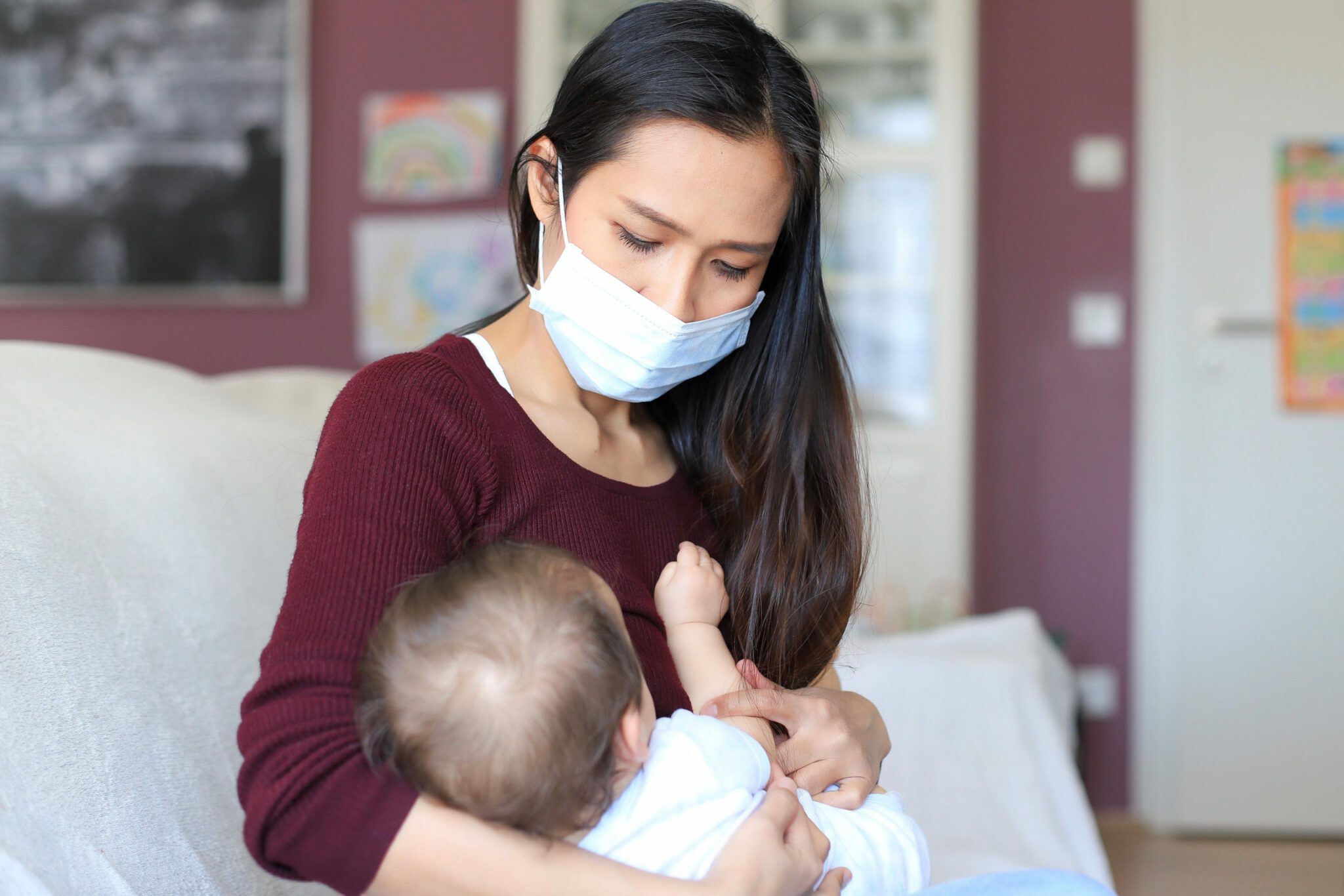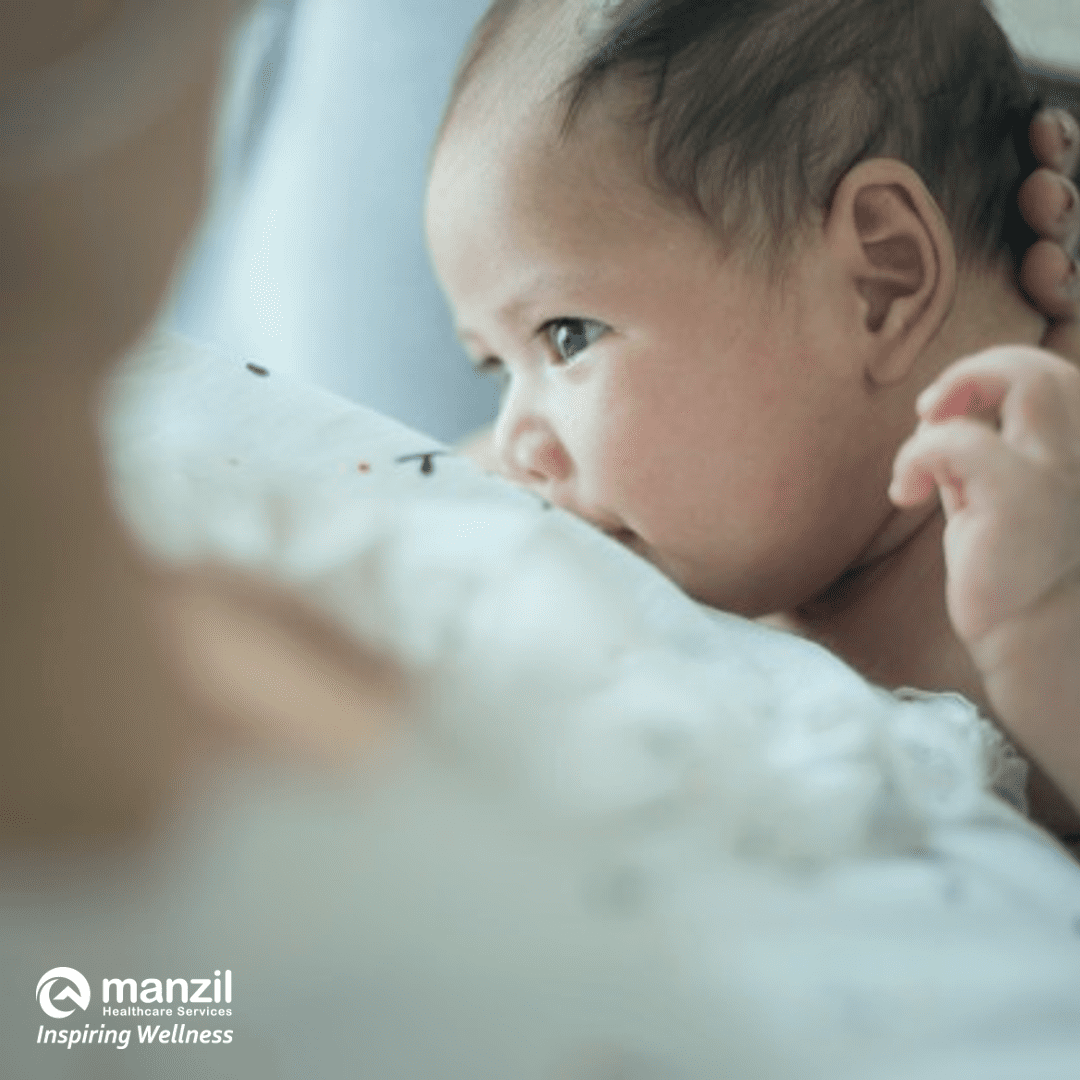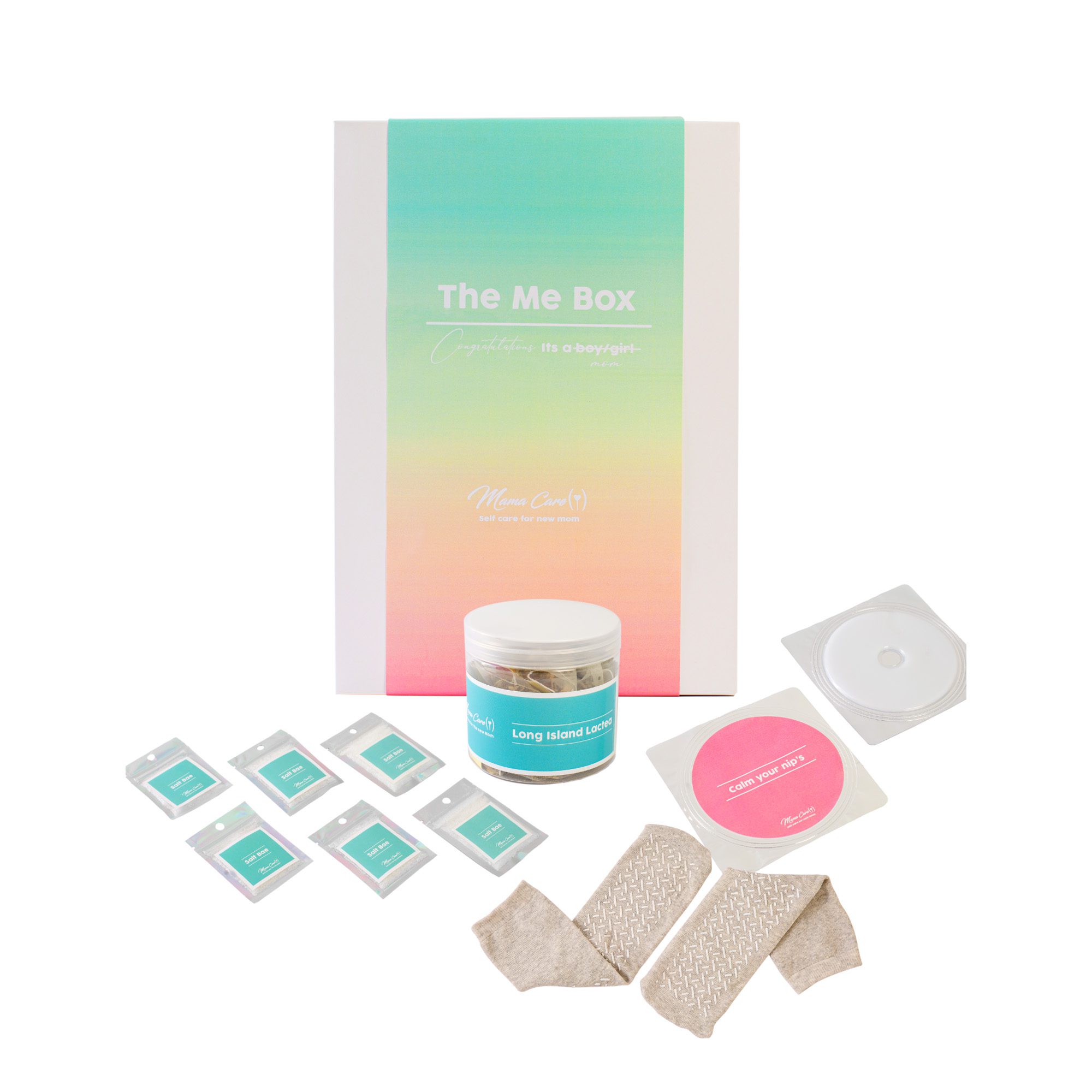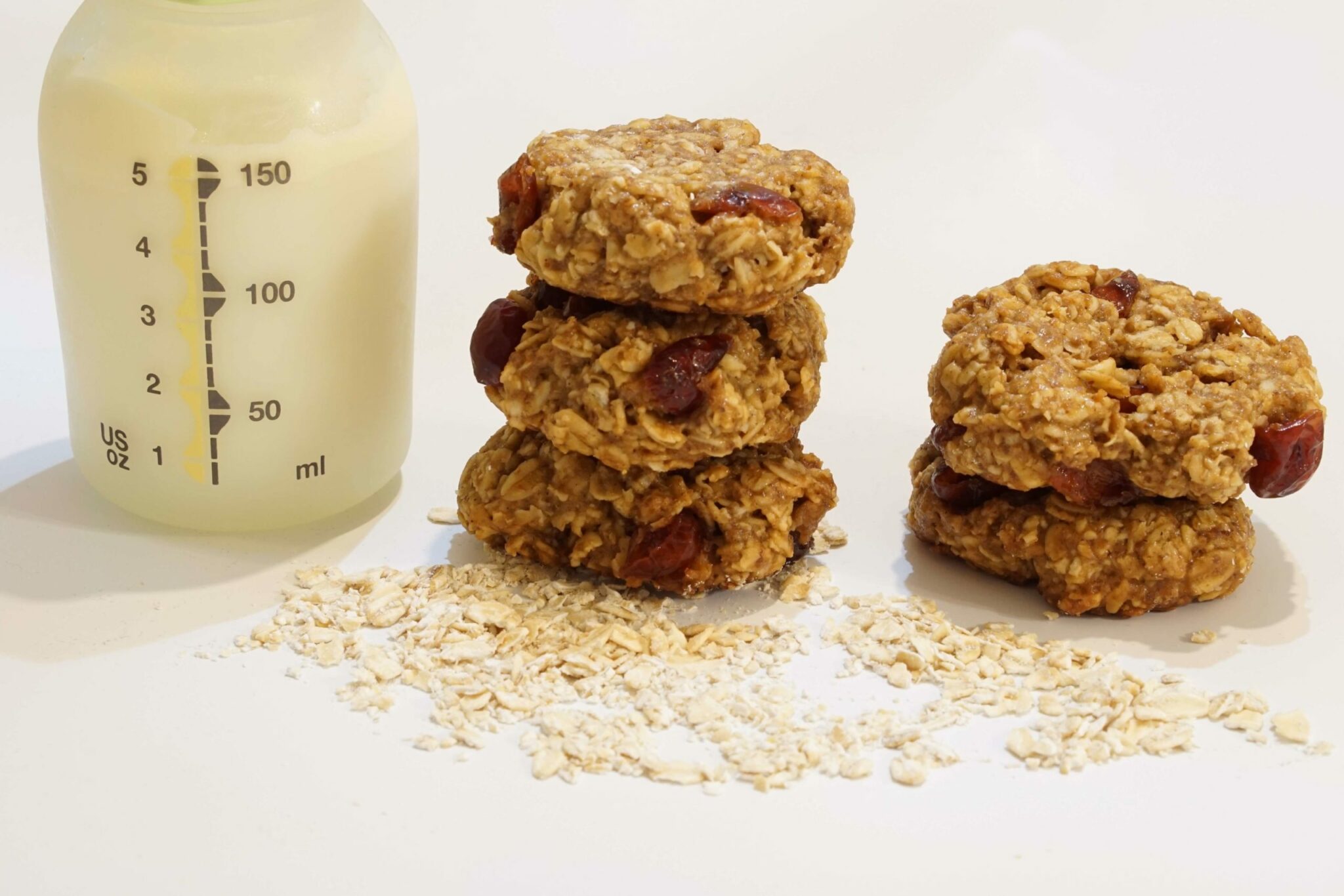Can I Breastfeed if I Have Been Diagnosed With COVID-19?


As far as the new COVID-19 virus is concerned, at present we have a lot more questions than answers. Hardly surprising given that at the start of the year barely anybody had heard of the virus. Whilst researchers and healthcare professionals work tirelessly to better understand a condition that has caused global chaos and uncertainty, all we can really do is follow current guidelines and make the best decisions for our families and loved ones.
The benefits of breastfeeding cannot be denied. The United Nations International Children’s Emergency Fund (UNICEF) and World Health Organisation (WHO) categorically state that exclusive breastfeeding for the first six months gives your child the best possible start.
But what about if you are ill yourself? The predictions suggest that many of us will, over time, be diagnosed with COVID-19 and this will include those who are pregnant or breastfeeding.
I have recently been diagnosed with COVID-19, should I stop breastfeeding?
First the good news, there is currently no clinical evidence that the virus passes into breast milk.
Next, the caveat……this virus is new, studies to date have been preliminary and whilst analyses performed thus far have found no transmission via breast milk, case numbers have been small.
This is probably why guidance from organisations such as WHO and the Centers for Disease Control and Prevention (CDC) with regards to breastfeeding following a COVID-19 diagnosis, is only just becoming available.
The main mode of virus spread is via respiratory droplets. These are the particles we release when we cough or exhale. Thus, it would seem that the biggest risk to your breastfed baby will probably come from the close contact and sharing of airborne droplets that comes with breastfeeding and not from the milk they are drinking.
Advice from the WHO states that:
“The numerous benefits of skin-to-skin contact and breastfeeding substantially outweigh the potential risks of transmission and illness associated with COVID-19”.
What precautionary steps can I take to minimise the risk of passing the virus to my child?
Talk to your family and health care professionals about the benefits and risks of breastfeeding.
Be aware that as time passes, our knowledge will develop and, as such, the advice from WHO and CDC may change.
To date, the advice is:
- If you feel well enough, breastfeed your infant. If not, consider expressing milk.
- Wash your hands thoroughly (for at least 20 seconds) before feeding your baby or touching any bottles or breast pumps.
- If you have access to a medical mask, wear it whilst feeding your baby. Consult WHO guidelines for how to safely wear and discard your mask.
- Try to avoid coughing or sneezing whilst feeding your baby. If you do cough or sneeze, use a tissue to catch any particles, discard it immediately and wash your hands again before continuing the feed.
- If you do express milk, ask someone who is well to feed your baby.
Make sure all equipment is thoroughly cleaned and sterilised before and after use.
Additionally:
- You do not need to wash your breast before every feed. However, if you cough or sneeze directly onto your chest, wash it promptly with soap and water for at least 20 seconds.
- There is no defined period of time to wait before breastfeeding after COVID-19 infection. If you are well enough, you should continue to breastfeed throughout. If you are not well enough, you can start as soon as you feel better. If lactation is difficult, consult a specialist for help and support.
Why are these guidelines different to those given to the general population?
On first appearances, these guidelines appear to directly contradict most of the advice we are being given elsewhere. Social distancing is a concept many of us are now implementing. Adults and older children are strongly recommended to avoid crowded places and maintain a distance of at least 1.5 metres from other people. This is considered to be the best approach for minimising transmission of the virus. In contrast, mothers are recommended to continue breastfeeding, even if they are COVID-19 positive, and ensure as much skin-to-skin contact as possible with their infant.
On the basis of the evidence available to date, the reasons for this are twofold:
- The benefits of breastfeeding far outweigh the risk of transmission. Breastfeeding reduces the risk of neonatal mortality and has additional health benefits for the nursing mother.
- To date, children are at low risk of COVID-19 infection. The majority that get it, experience only mild symptoms, or are asymptomatic
Staying positive
Breastfeeding can be difficult at the best of times; add a global pandemic to the mix and things really get tough. Remember that nothing needs to come between the bond you have with your child. There is no need for you to completely socially isolate yourself from your baby. In the early days of the virus, some new mothers in China were advised to separate from their babies for 14 days (the predicted incubation period). This was rapidly found to be far more detrimental than beneficial in terms of bonding and initiating feeding.
Babies and young children have, to date, not been severely affected by COVID-19. Of course you do not want your child to fall ill, but maintain good personal hygiene and you will reduce the chances of this happening.
Allow yourself time to recover. Even if your symptoms seem mild, this new virus is a big deal. There is a lot that remains unknown and until it is better understood, erring on the side of caution is wise. Ask family and friends for help.
Nabta is reshaping women’s healthcare. We support women with their personal health journeys, from everyday wellbeing to the uniquely female experiences of fertility, pregnancy, and menopause.
Get in touch if you have any questions about this article or any aspect of women’s health. We’re here for you.
Sources:
- Chen, Huijun, et al. “Clinical Characteristics and Intrauterine Vertical Transmission Potential of COVID-19 Infection in Nine Pregnant Women: a Retrospective Review of Medical Records.” The Lancet, vol. 395, no. 10226, 7 Mar. 2020, pp. 809–815., doi:10.1016/s0140-6736(20)30360-3.
- “Coronavirus Infection and Pregnancy.” Royal College of Obstetricians & Gynaecologists, www.rcog.org.uk/en/guidelines-research-services/guidelines/coronavirus-pregnancy/covid-19-virus-infection-and-pregnancy/.
- “FREQUENTLY ASKED QUESTIONS: Breastfeeding and COVID-19 For health care workers”. World Health Organization, https://www.who.int/docs/default-source/maternal-health/faqs-breastfeeding-and-covid-19.pdf?sfvrsn=d839e6c0_1.
- “Pregnancy & Breastfeeding.” Centers for Disease Control and Prevention, Centers for Disease Control and Prevention, 17 Mar. 2020, www.cdc.gov/coronavirus/2019-ncov/prepare/pregnancy-breastfeeding.html.
- Rasmussen, Sonja A., et al. “Coronavirus Disease 2019 (COVID-19) and Pregnancy: What Obstetricians Need to Know.” American Journal of Obstetrics and Gynecology, 24 Feb. 2020, doi:10.1016/j.ajog.2020.02.017.
- “When and How to Use Masks.” World Health Organization, World Health Organization, www.who.int/emergencies/diseases/novel-coronavirus-2019/advice-for-public/when-and-how-to-use-masks.












































